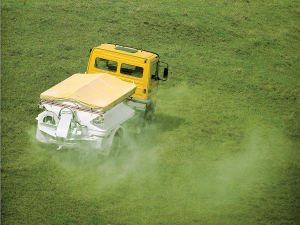Strange bedfellows
OPINION: Two types of grifters have used the sale of Fonterra's consumer brands as a platform to push their own agendas - under the guise of 'caring about the country'.
 Harry Clark says while reducing synthetic nitrogen fertiliser would lower emissions, the commission is unsure if the impact of this would mean whether farms would continue to be viable.
Harry Clark says while reducing synthetic nitrogen fertiliser would lower emissions, the commission is unsure if the impact of this would mean whether farms would continue to be viable.
Claims by Greenpeace that the Climate Change Commission ignored internal advice are not what they appear to be, says Climate Change Commissioner Harry Clark.
Last month, Greenpeace claimed the Climate Change Commission had ignored internal advice from a supposedly hidden report entitled: ‘Eliminating synthetic nitrogen fertiliser on dairy farms.’
Greenpeace campaigner Christine Rose asked why the Commission was ignoring the report.
“Why did it prioritise the maximum of milk production ahead of cutting greenhouse emissions – the exact opposite of what it was supposed to do,” Rose asked. “Who does it work for: New Zealand or Fonterra?”
She claimed that when applied to land, synthetic nitrogen fertiliser emits more climate pollution than all of New Zealand’s pre-Covid domestic flights.
However, the report is available to the public on the Climate Change Commission’s website.
It states that: “Reductions in synthetic nitrogen fertiliser can be part of the combination of management practices associated with reducing on-farm emissions. These also include adjustments to supplementary feed use and stocking rates, which are tightly coupled to fertiliser use.”
This is similar to the advice provided to Parliament in its final report in June.
This quotes a study from the Fertiliser Association of New Zealand, which modelled the potential impact eliminating synthetic nitrogen fertiliser from different farming systems. While the study claims eliminating synthetic nitrogen fertiliser would reduce emissions by between 10% and 31%, it would also require a reduction in stocking and therefore milk production.
Climate Change Commissioner Harry Clark says the Commission agrees that drastically reducing synthetic nitrogen fertiliser would lower emissions.
“But what we can’t be sure of is what the impact of this sort of sudden change would mean for people, and whether many farms would continue to be viable,” Clark told Rural News.
He says that the agriculture sector, economy, and rural communities and households that would be impacted must be supported through these big changes.
“We asked ourselves a series of questions when developing our advice. Is this ambitious enough? Is it fair and equitable? Is it technically and economically feasible? Can it be achieved through policy?”
Clark says the Commission’s advice to government is that changes need to be made to the way New Zealanders farm.
“We have made recommendations around changing farm practices – this could be changing stock levels, reducing supplementary feed and reducing synthetic nitrogen fertiliser.
“Our advice sets an ambitious level of change across every sector – including agriculture. We will continue to look at synthetic nitrogen use in our 2022 advice on progress against pricing agricultural emissions, and in our subsequent budgets.”
The World Wide Sires National All Day Breeds Best Youth Camp Best All Rounder plaudit has become family affair, with 2026 Paramount Cup winner Holly Williams following in her sister Zara's footsteps.
DairyNZ is giving New Zealand farmers a unique opportunity to gain hands-on governance and leadership experience within the dairy sector.
Herd improvement company LIC has posted a 5.2% lift in half-year revenue, thanks to increasing demand for genetics.
According to the latest Fresh Produce Trend Report from United Fresh, 2026 will be a year where fruit and vegetables are shaped by cost pressures, rapid digital adoption, and a renewed focus on wellbeing at home.
The Roar is a highlight of the game hunting calendar in New Zealand, with thousands of hunters set to head for the hills to hunt male stags during March and April.
OPINION: The past few weeks have been tough on farms across the North Island: floods and storms have caused damage and disruption to families and businesses.

OPINION: Meanwhile, red blooded Northland politician Matua Shane Jones has provided one of the most telling quotes of the year…
OPINION: This old mutt has been around for a few years now and it seems these ‘once in 100-year’ weather…